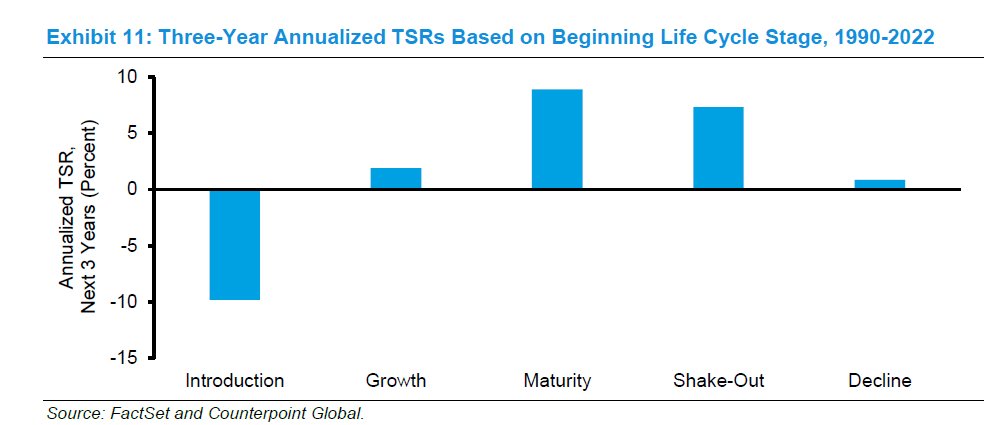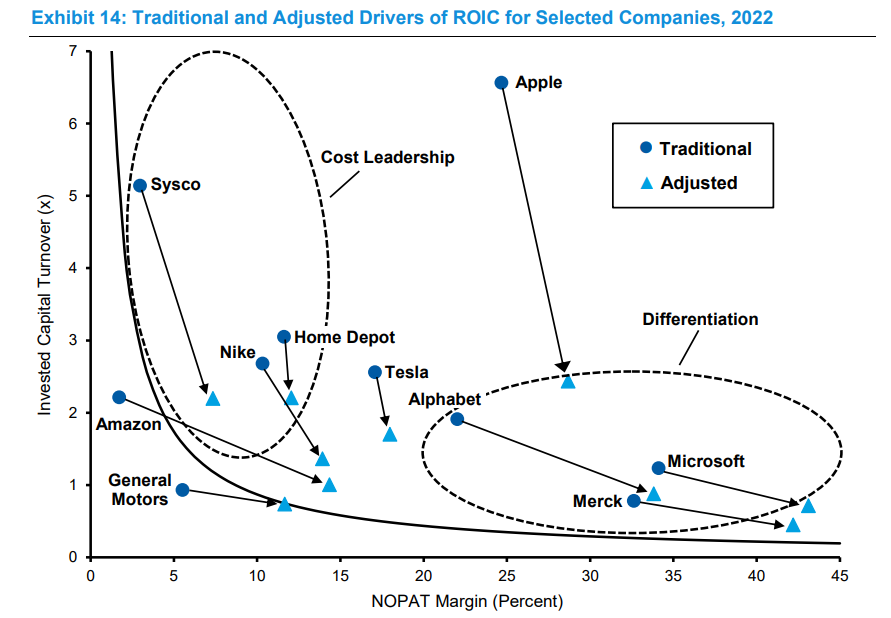Brian Jellison's new strategy at $ROP
"bankers focused pitches on consolidating end markets and making easy-to-do deals where the value was in the synergies... Boards wanted easy-to explain combinations"
Book: Lessons from the Titans
"bankers focused pitches on consolidating end markets and making easy-to-do deals where the value was in the synergies... Boards wanted easy-to explain combinations"
Book: Lessons from the Titans

Different times:
"The valuation for an asset-heavy company with
potential tail liabilities was not much less than the
valuation for a software company ... if the asset heavy
company had razor/razorblade characteristics, its
valuation was often higher."
"The valuation for an asset-heavy company with
potential tail liabilities was not much less than the
valuation for a software company ... if the asset heavy
company had razor/razorblade characteristics, its
valuation was often higher."

"Jellison found the biggest mispricings in less sexy, slower, but still solid growers. These were usually software companies in highly niche markets."
Software "Contracts were typically paid up front ... Deferred revenue meant that Jellison could run his company on zero or negative working capital.
That entire concept made him almost giddy."
That entire concept made him almost giddy."

The challenges of accounting:
"returns on a traditional accounting construct like ROIC would go down each time a deal was closed. Then it would begin to rise after the deal, only to be deflated by another deal. For traditional investors, that was a challenge to understand."

"returns on a traditional accounting construct like ROIC would go down each time a deal was closed. Then it would begin to rise after the deal, only to be deflated by another deal. For traditional investors, that was a challenge to understand."


Bet on this guy.
"He loved the job and the game. He wanted to beat the big guys. An outcast from that world, he was considered not polished enough, with opinions that were too strong. He had a chip on his shoulder.
He benchmarked his company, almost to a level of infatuation."
"He loved the job and the game. He wanted to beat the big guys. An outcast from that world, he was considered not polished enough, with opinions that were too strong. He had a chip on his shoulder.
He benchmarked his company, almost to a level of infatuation."

• • •
Missing some Tweet in this thread? You can try to
force a refresh














